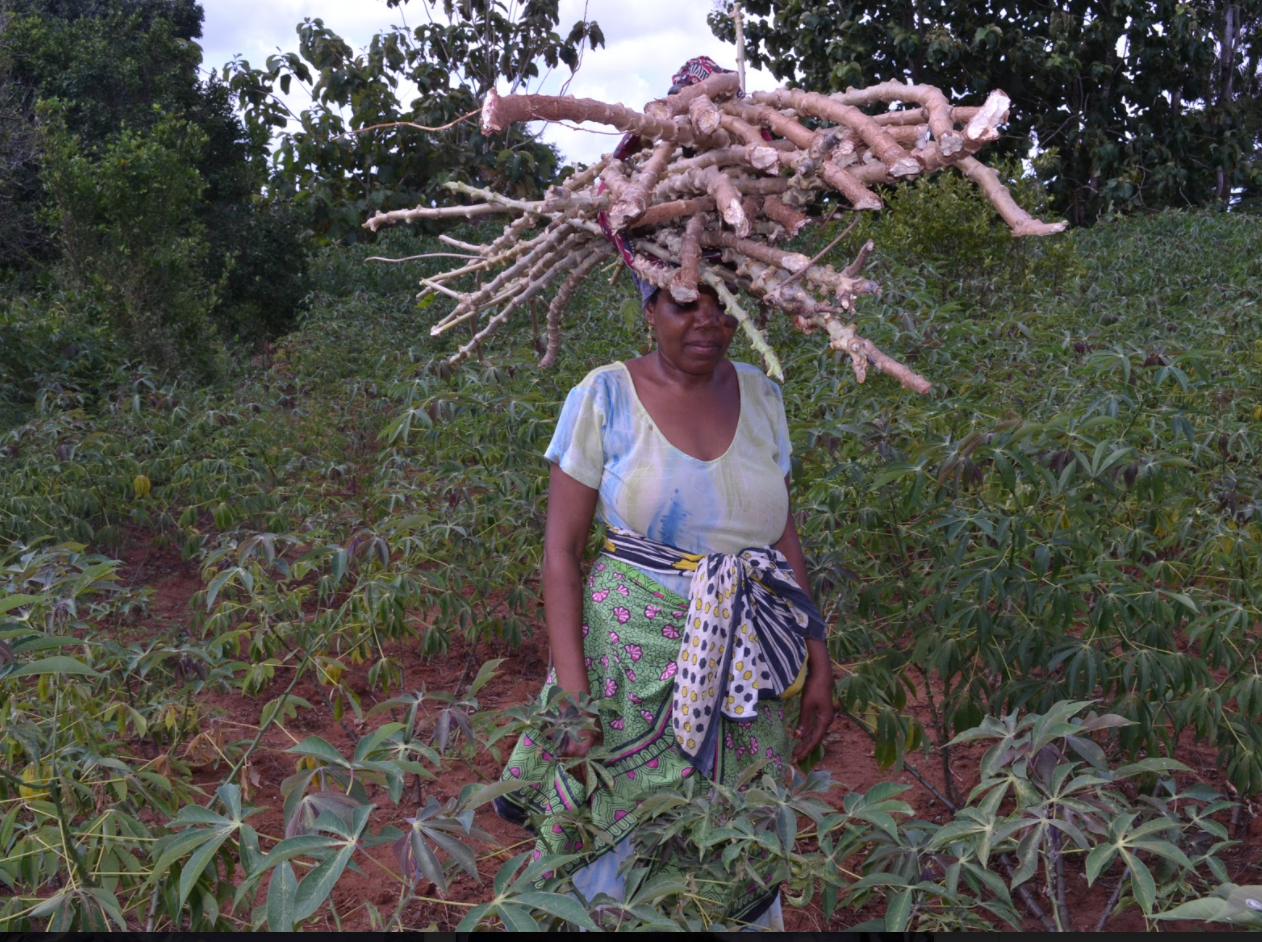Mtwara
In regions with scarce rainfall and questionable soil fertility, such as the Southern parts of Tanzania, cassava is an essential crop. It ensures household food security and nutrition. Cassava often serves as a significant food reserve, fostering food security. Many farmers intercrop cassava with other crops like cowpeas, pigeon peas, and groundnuts.
The crop provides food and occasional income for the local population. In the southern region, cassava constitutes about 75% of the food supply in all coastal provinces. It thrives well in areas located 0 – 1,500 meters above sea level and regions that receive an average rainfall of 750 – 1,200mm per year. Cassava flourishes in sandy soil, but traditional cultivation methods and diseases, such as mosaic disease and cassava brown streak disease, plague the crop.
In response to these challenges, the Agricultural Research Institute (TARI) in Naliendele has been conducting extensive research to transform farming practices and ensure productive agriculture. One of their research initiatives was implemented in Mtwara district, particularly in the field classes in Mkunwa village, Mkunwa ward.
TARI has various field classes throughout the country to provide farmers with quality cassava seeds and transform traditional farming methods. One such field class is in Mkunwa.
Joseph Tesha, the Officer for Agriculture, Livestock, and Fisheries of the Mtwara District Council, appreciates TARI Naliendele’s efforts to transform cassava farming in his district. During the Farmer’s Day in the Field, where farmers were harvesting various new cassava seeds, including indigenous ones, Tesha reports that farmers realized the quality and importance of modern farming for this staple crop in Mtwara district.
Tesha said, “The council wholeheartedly accepts these trials as locals have witnessed the crop’s quality, how to cultivate and care for it since the field class was done in cooperation with the farmers, who participated in planting and maintaining the crop during the required period and have now reached the harvesting stage.”
These field class results have encouraged farmers, leading to increasing interest in new seeds and understanding the benefits of modern farming techniques that result in higher yields.
Festo Masisila, a cassava crop researcher from TARI Naliendele, stated that the institute provided nine types of seeds, including indigenous ones, to the farmers at the field class set in Mkunwa village, where soil fertility is poor. These new seeds, approved by the seed authority in 2019, include Tari series, Chereko, and Kiroba, which are disease-resistant and yield more.
Masisila states that despite the poor soil fertility, these modern, superior seeds thrived and matured within the accepted period, with no stem yielding less than 3.5 kilograms. He says that the purpose of the field class is to revolutionize cassava farming, which is the staple crop in Mtwara, making it profitable rather than subsistence-based.
Farmers participating in this field class appreciated the opportunity to learn the secret of productive cassava farming. They plan to share their new knowledge and seeds with their peers to transform farming and make it more profitable.
Bahati Abeid, a farmer from Mkunwa village, who started cassava farming in 2019, learned modern farming techniques and was determined to stick to them because of their profitability.
“Cassava is not only suitable for food but is also a commercial crop, and in business, you produce more with lower costs for greater profit,” says Bahati.
Another farmer, Bakari Mauko, appreciates TARI for providing excellent seeds. He noticed a significant difference in yield between indigenous and new seeds, and he didn’t experience diseases typically associated with their local seeds.
Government officials in Mtwara state that the region has never reported a famine due to the presence of cassava, and with TARI’s efforts, farmers will now focus on commerce as a small area yields more than a household’s needs.
Source: Rahel Pallangyo of HabariLEO
